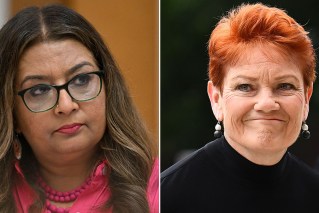Why gambling advertising could disappear from TV screens by 2026

Banning gambling advertising would be a watershed moment, but not a fix-all, experts have said, after a parliamentary committee released the findings of a landmark report into the practice in Australia.
The parliamentary committee handed down a swathe of recommendations on Wednesday regarding online gambling, including banning advertising across all media within three years.
The Standing Committee on Social Policy and Legal Affairs made 31 recommendations including “a comprehensive ban on all forms of advertising for online gambling, to be introduced in four phases, over three years, commencing immediately”.
Professor Sally Gainsbury, director of the Gambling Treatment and Research Clinic at the University of Sydney, said if the recommendation is adopted it will be a watershed moment; however, it will not solve all gambling harm.
“It’s really important to be mindful that these are just an advertisement. They’re not the main factor in developing a gambling problem, which is a mental health disorder with complex factors,” she said.
“Gambling advertisements in and of themselves do not cause gambling problems. It’s really more about the positioning of the product, the overall societal messaging.
“A ban on advertising is just one piece of a larger policy which will be needed to reduce gambling harm.”
The recommended four-stage phasing out of gambling advertising would first prohibit online gambling advertising on social media and online platforms, and remove exemptions for online gambling advertising during news and current affairs broadcasts, and on commercial radio during school drop-off and pick-up times.
This would be followed by a ban on all gambling advertising and commentary on odds, either during and an hour on either side of a sports broadcast, along with in-stadium advertising and team uniforms.
The third phase would ban advertising between the hours of 6am and 10pm.
By the end of year three, the report recommended a ban on all advertising and sponsorship, with exemptions for dedicated racing channels.
Professor Gainsbury said advertising gambling during sporting events creates the perception that it is an acceptable activity for a variety of people.
“It links gambling ads with sports and sends a message that these two things are to be engaged in at the same time,” she said.
“Overall, reducing gambling ads won’t stop gambling problems, but it will help send the message of a broader societal change towards demonstrating that gambling is a risky activity intended for adults only.”
Political response
The committee consists of cross-party members and includes Labor’s Peta Murphy, Mary Doyle, Shayne Neumann, Louise Miller-Frost and Sam Lim; Liberal Party members Jenny Ware and Keith Wolahan, Pat Conaghan from the Nationals, and independent Kate Chaney.
Independent MP for Goldstein Zoe Daniel welcomed the acknowledgement that gambling advertising “is doing real harm right now, especially to young people,” but said allowing it to continue for three more years would allow industry giants and other vested interests to lobby and water down the recommendations.
“(It is) grooming them to be future customers, and encourages riskier betting,” she said.
“It is manipulating an impressionable and vulnerable audience, who are being exposed to gambling material across all media. It is inescapable.”

Goldstein MP Zoe Daniel welcomed the recommendations after introducing legislation in 2022. Photo: Zoe Daniel
Ms Daniel previously introduced a private members bill in 2022 to ban gambling advertising during sports broadcasts.
Opposition Leader Peter Dutton has also called for a ban on advertising an hour before and an hour after a sports broadcast.
During a press conference on Wednesday, shadow minister for sport Anne Ruston said while she hadn’t yet read the whole report, she was pleased to see the recommendations.
“I think it was really pleasing to see that the report actually backed in the commitment of our Leader of the Opposition that he made back when replying to the budget,” she said.
“We have been working with the gambling sector to make sure that we’re putting in protections to help vulnerable Australians to make sure that they are protected in the gambling space.”
The government has yet to respond to the recommendations.
Other recommendations
It is also recommended that national strategy harm reduction measures are funded through a levy on online wagering service providers.
The parliamentary committee also recommended that responsibility for online gambling reduction be held by a single government minister, a comprehensive national strategy on harm reduction be developed, a national online gambling regulator be established, and a national education campaign is launched.
Professor Gainsbury said because the report only makes policy recommendations, she would encourage community members to make sure their concerns are expressed and to gamble with responsible operators.








